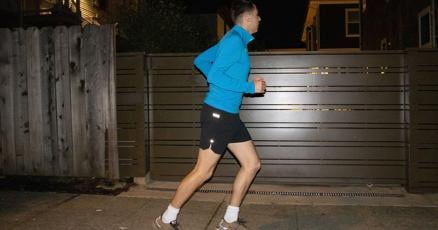NARP, short for non-athletic regular person, is a term frequently used within college athletic circles to refer to the majority of students who do not engage in collegiate sports.
The term carries a subtle condescension, suggesting that only truly exceptional individuals can successfully juggle the rigorous academic demands alongside the commitments of upper division athletics — something a “NARP” would presumably struggle with. While acknowledging the hard work and dedication of athletes at UC Berkeley, it’s clear that not everyone can thrive in the dual role of student and athlete at such a prestigious institution.
Having been actively involved in athletics throughout high school, particularly in the demanding sport of rowing, I can relate to the sense of superiority that can develop. The intense schedule of waking up at 5 a.m. for morning practice, attending school, followed by another three hours of afternoon practice, and then dedicating evenings to school work before an early bedtime was the norm for me. Spending approximately 30 hours per week in strenuous workouts, I embodied the ethos of “work hard, play hard,” albeit without much time for the latter. While I cherished my years as a rower, the decision to leave the sport behind upon entering college felt like a significant loss, akin to a breakup.
Transitioning to a “NARP” lifestyle at UC Berkeley was a gradual process that began during my freshman year. Despite no longer actively participating in rowing, I maintained close ties with former teammates and affiliated myself with the athletic community on campus, clinging onto my identity as a rower as it was all I had known for years.
In an attempt to replicate my rowing team’s workout regimen at the campus gym, I pushed myself to maintain a rigorous exercise routine, often to the point of physical and mental strain without the guidance of a coach or team. However, I soon realized that this unsustainable approach was not conducive to my overall well-being and personal growth. College presented an opportunity for self-discovery and exploration beyond the confines of high school athletics.
By the spring semester of my freshman year, I had come to terms with embracing my identity as a “NARP,” letting go of the past and focusing on the present. While I carry aspects of the athlete mindset with me, such as discipline and consistency, I have learned to apply these principles to various aspects of my life beyond sports.
Now, as a sophomore with several semesters of “NARP-ness” behind me, I take pride in the freedom and opportunities that come with not being a competitive athlete. Embracing this new phase of my life has allowed me to dedicate more time to my academic and professional pursuits, leading to personal growth and the discovery of diverse facets of my identity.
To all the NARPs out there, if ever faced with being labeled as such, remember to take it as a compliment. Embrace the unique journey of self-discovery and personal development that comes with not fitting into the traditional athlete mold.
